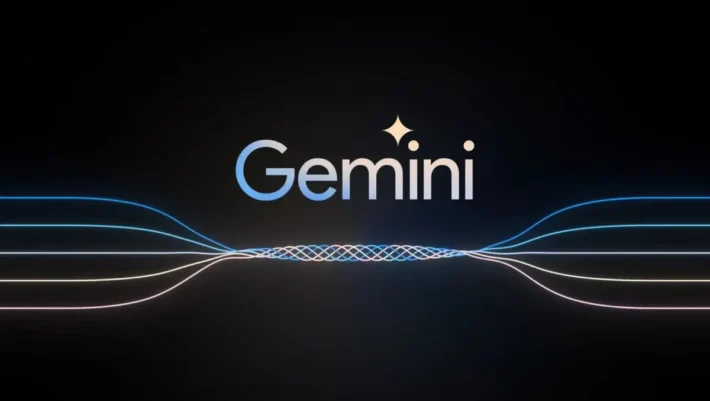Gemini cli vs Claude code: Which one should you choose?

Google and Anthropic have each introduced powerful command-line AI tools—Gemini CLI and Claude Code—aimed at embedding advanced large language models directly into developers’ workflows. As AI-driven assistance becomes ever more integral to coding, debugging, and research, understanding which of these tools best suits your needs is critical. This in-depth comparison covers their origins, features, usability, performance, pricing, and future outlook.
What is Gemini CLI ?
The Gemini CLI is an open‑source command‑line AI agent developed by Google to bring the power of its Gemini models directly into developers’ terminals. First announced in preview on June 25, 2025, the tool leverages a “reason‑and‑act” loop (ReAct) to interact with built‑in developer tools or remote Model Context Protocol (MCP) servers. This design allows users to tackle tasks such as code comprehension, file manipulation, and automated command execution through natural language prompts, effectively transforming the terminal into an AI‑powered assistant.
Since its preview release, Gemini CLI has seen steady improvements and feature additions. On July 19, 2025, version v0.1.13 was published on GitHub, marking the tool’s most recent stable update. While the release notes primarily list internal fixes and dependency upgrades, the cadence underscores Google’s commitment to rapid iterations and community contributions via its open‑source repository .
What are the core features introduced in the June 2025 preview?
The preview launch highlighted several key capabilities:
- Natural‑language code operations: Users can instruct Gemini CLI to write, debug, or refactor code, receive explanations of complex functions, and even generate tests based on simple prompts.
- Seamless workflow integration: The CLI connects directly to local environments, leveraging installed tools and command‑line utilities without context switching .
- Extensibility via MCP: Developers can hook the CLI into remote MCP servers—either Google’s own or third‑party services—enabling more sophisticated tasks like querying proprietary datasets or orchestrating complex multi‑step pipelines .
What is Claude Code ?
Claude Code is Anthropic’s agent‑oriented coding assistant that operates within the developer’s terminal. Designed to understand an entire codebase and perform actions—such as editing files, running commands, and managing Git workflows—Claude Code bridges conversational AI and hands‑on development tasks. It builds on Anthropic’s Claude 4 family, known for extensive context windows (up to 200,000 tokens) and advanced reasoning capabilities within enterprise settings ([TechRadar][5], .
Initially introduced in research preview, Claude Code reached general availability with the release of Claude 4 on May 22, 2025. The production‑ready launch included new background task support via GitHub Actions, and first‑party integrations for VS Code and JetBrains IDEs, enabling live, in‑IDE code edits directly from Claude’s suggestions .
What updates arrived in the June 2025 release notes?
- Real‑time communication protocols: As of June 18, 2025, Claude Code now supports both Server‑Sent Events (SSE) and HTTP transports for its MCP connectors. This enables more reliable, low‑latency interactions with remote development environments and enterprise data sources through the
/mcpcommand with OAuth 2.0 authentication . - Multi‑language SDK availability: On June 11, 2025, Anthropic published official TypeScript and Python SDKs for Claude Code, facilitating custom tooling and scripting in familiar languages, and democratizing the creation of Claude‑powered developer extensions .
What additional features differentiate Claude Code?
Beyond direct code actions, Claude Code leverages Anthropic’s Model Context Protocol to connect to a wider suite of services—such as Google Drive for design documents, Jira for ticket management, and custom enterprise tooling—allowing it to read and update artifacts as part of a unified workflow. Early adopters within financial services have applied Claude Code for automating Excel model updates, performing regulatory compliance checks, and generating risk‑analysis reports, demonstrating a high degree of flexibility across sectors .
How do their features compare?
What about context windows and model capabilities?
- Gemini CLI’s 1 million‑token context empowers it to ingest entire monorepos or deep research articles without fragmentation. This excels for tasks like multi‑file refactoring or end‑to‑end documentation generation in one prompt .
- Claude Code inherits up to 200 k tokens from Claude 3 models (Haiku, Sonnet, Opus), which sufficiently cover most codebases but may require strategic chunking for very large projects .
How does multimodal and integration support differ?
- Gemini CLI natively supports multimodal inputs—code, text, images—via the Model Context Protocol, and can perform local image recognition or script automation within the CLI.
- Claude Code integrates through MCP connectors (SSE/HTTP) and offers real‑time streaming responses. It doesn’t process images locally but can orchestrate external tools (e.g., Puppeteer for visual testing) or connect to cloud services via OAuth .
Are they open‑source and extensible?
- Gemini CLI is fully open‑source under Apache 2.0 on GitHub, with active community engagement (5.7 k forks, 61.4 k stars). Recent releases (v0.1.13) have addressed UX polish, loop detection, VS Code extension support, and privacy settings .
- Claude Code remains proprietary but provides SDKs for TypeScript and Python, plus a public CHANGELOG. While not open to direct code contributions, its MCP‑based architecture allows developers to build custom servers and plugins in their own repos .
How do their AI capabilities stack up?
Claude Code: Leveraging Claude 4’s massive context window and sophisticated reasoning, Claude Code shines in handling complex, multi‑stage coding tasks—such as refactoring large codebases, generating intricate test suites, or synthesizing domain‑specific reports. Its advanced chaining and background task execution via GitHub Actions extend its situational awareness beyond the immediate terminal session .
Gemini CLI: Powered by Google’s Gemini models (including multimodal GPT‑4‑like intelligence), the CLI excels at quick code understanding and file operations. Its integration with Google Search can enrich prompts with real‑world data or documentation lookups, aiding in tasks like dependency resolution and configuration management.
Which offers better developer experience?
How easy is installation and setup?
- Gemini CLI requires Node.js 18+, installed via
npm install -g @google/gemini-cli. Authentication uses a Google account login flow to grant free Gemini Code Assist licenses. Setup typically takes under 5 minutes . - Claude Code offers a simple install script (
curl … | bash) and supports both Pro and Max subscription tiers. Configuration uses aclaude.jsonfile and optionalCLAUDE.mdfor project‑specific context .
How well do they integrate into workflows and automation?
- Gemini CLI can be scripted in
bashorPowerShell, embedded in CI/CD pipelines, and used interactively (gemini interactive) or headless for batch processing. Extensions forgemini.mdcustomization enable per‑project AI agents . - Claude Code shines in automation: headless mode outputs streamable JSON for CI, supports multiple parallel agents via Git worktrees, and includes a visibility dashboard in Anthropic Workbench for usage analytics.
What does the user experience look like?
Both tools embrace a conversation‑style interface, but adapt it differently to the terminal:
- Gemini CLI uses a straightforward prompt‑and‑response model, with clear commands like
gemini explain,gemini fix, andgemini generate. Its UI echoes familiar Git and Unix CLI patterns, reducing the learning curve for seasoned terminal users . - Claude Code embeds its commands under the
claudenamespace, with slash‑command support (/mcp,/full-context). Its background task and IDE integration features, like automatic pull request creation and code diffs directly in VS Code, streamline the workflow for developers who prefer an integrated environment .
How do performance and pricing stack up?
Which has lower latency and higher throughput?
- Gemini CLI requests average 200–300 ms per token for Gemini 2.5 Pro, optimized via Google’s global edge network. Community tests report low jitter and high reliability in sustained sessions .
- Claude Code maintains 250–350 ms per token on Opus 4, with MCP streaming reducing perceived latency. Enterprise deployments can host private MCP servers to further lower round‑trip times .
What about usage quotas and cost efficiency?
- Gemini CLI’s free tier (1 000 requests/day) outperforms many competitors. Paid plans unlock higher QPS limits and access to upcoming Gemini 3.0 models hinted at in the CLI repo .
- Claude Code access depends on the user’s Claude plan: Pro and Max tiers include limited code CLI sessions, with overage billed per 1 k tokens. Enterprise agreements offer volume discounts and dedicated MCP capacity .
A Comparative Overview
The following table highlights the salient differences and similarities between these two leading AI‑powered CLIs:
| Feature | Gemini CLI | Claude Code |
|---|---|---|
| Release Date | June 25, 2025 (Preview) | Research preview Feb 24, 2025; GA May 22, 2025 |
| License | Apache 2.0 | Open‑source (per Anthropic’s GitHub repo) |
| Underlying Model | Gemini 2.5 Pro (up to 1M token context) | Claude 4 family (Opus, Sonnet) |
| Usage Quota (Free Tier) | 60 req/min, 1,000 req/day | Configurable via subscription; free research tier available |
| Multi‑Modal Support | Yes (images, web search, MCP integration) | Primarily text; MCP allows external plugins (including web search) |
| Extensibility | VS Code extension, community plugins | Hooks, slash commands, MCP connectors |
| Headless/Automation Mode | Yes (via MCP servers, scripting) | Yes (-p headless mode with JSON streaming) |
| Custom Config File | gemini.md | CLAUDE.md |
| Platform Support | macOS, Linux, Windows | macOS, Linux, Windows |
Getting Started
CometAPI is a unified API platform that aggregates over 500 AI models from leading providers—such as OpenAI’s GPT series, Google’s Gemini, Anthropic’s Claude, Midjourney, Suno, and more—into a single, developer-friendly interface. By offering consistent authentication, request formatting, and response handling, CometAPI dramatically simplifies the integration of AI capabilities into your applications. Whether you’re building chatbots, image generators, music composers, or data‐driven analytics pipelines, CometAPI lets you iterate faster, control costs, and remain vendor-agnostic—all while tapping into the latest breakthroughs across the AI ecosystem.
CometAPI has supported gemini cli,details refer to doc.Supercharge your terminal with Google’s Gemini CLI on CometAPI!You can analyze massive codebases with a 1M+ token context and Turn ideas, diagrams, and even PDFs into code.Integrate in minutes and start building smarter.
We’re also excited to announce that CometAPI now fully supports the powerful Claude Code.What does this mean for you: Top Artificial Intelligence features: Easily generate, debug and optimize code using models built specifically for developers,details refer to claude code doc.
See also
- How to Install and Run Claude Code via CometAPI? The Ultimate Guide
- Claude Code vs Cursor: Which is Better (A Comprehensive analysis)
- Google Gemini CLI Tutorial: How to Install and Use It via CometAPI
Which tool should you choose overall?
Ultimately, the “better” tool depends on your specific context:
- Choose Gemini CLI if you value an open‑source, terminal‑first experience with flexible hosting options and tight integration into existing shell workflows.
- Opt for Claude Code if your priorities include deep enterprise integrations, extended context handling, and formal compliance controls, even at a higher price point.
Both tools represent the cutting edge of AI‑powered development assistance in 2025. By aligning their respective strengths with your project’s scale, security needs, and budget, you can harness powerful AI capabilities to accelerate coding, streamline workflows, and drive innovation.



